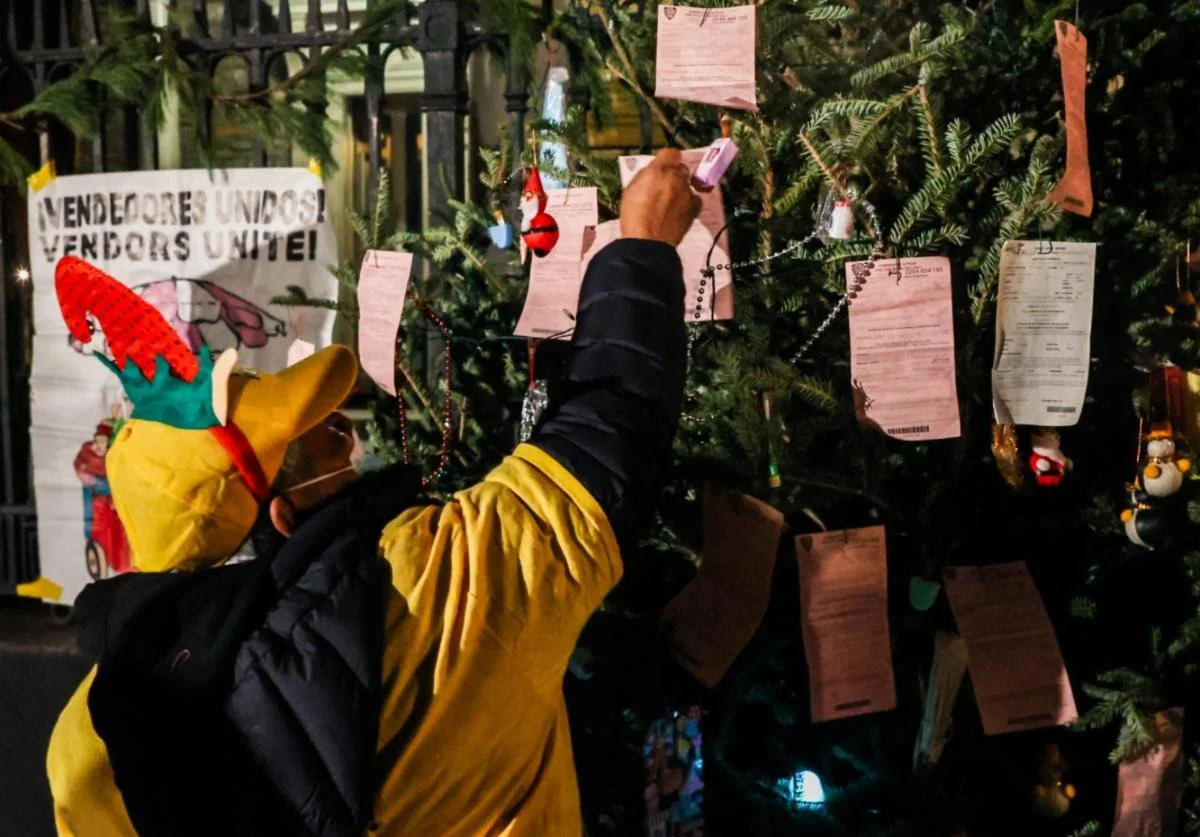Vendors rally against fines and permit caps
/Advocates rallied Tuesday to promote better conditions for street vendors. Photo courtesy of Urban Justice Center
By Rachel Vick
Dozens of street vendors, advocates and elected officials gathered to protest continued fines against unlicensed vendors while the pandemic rages on — and while the city’s licensing process for vendors is at a standstill.
During the action, participants decorated a Christmas tree with the tickets issued to vendors while calling for the passage of legislation amending existing rules and easing restrictions on sidewalk sellers sponsored by Queens representatives .
“After a long fight, many street vendors were finally able to access small business grants, unemployment, and support from the Excluded Workers Fund, only to have to give that money right back to cover punitive fines issued by the city,” said State Senator Jessica Ramos, Senate sponsor of the legislation. “Street vendors are part of the entrepreneurial backbone of our local economies, and we cannot in good faith talk about a just recovery for our state without prioritizing… the legalization of street vending in 2022.”
The legislation, sponsored in the Assembly by Assemblymember Jessica Gonzalez-Rojas, would legalize vendors selling in city parks unless a park has an exclusive concessions contract, legalize roaming vendors selling in residential neighborhoods and limit fine amounts.
Vendors currently face fines up to $1,000 and confiscation of goods.
There are caps on mobile food vending permits but by 2032 there are expected to be 9,000 supervisory licenses available, according to the Street Vendors Project. There are only 853 total licenses for merchandise vendors.
The waitlist for both is thousands of names long, and the extreme buildup has reached a point where applications are no longer being processed.
According to advocates, vendors have turned to illegally renting permits from current holders charging upwards of $10,000 or taking the risk to try and keep their families afloat.
Lucio Gonzalez, a member of the Street Vendor Project from Fordham Road in the Bronx, said that he has tried and failed to get a permit, but without other options has racked up thousands of dollars in fines.
"I became a street vendor at the beginning of the pandemic after losing my job in a restaurant,” Gonzalez said. “I started a street vending business because it's honest work, and I can use my skills as a cook to make a successful business. I never thought I'd receive $2,050 in fines for selling tacos.”
“Now,” he added. “I have to use my relief from the Excluded Workers Fund, which was supposed to help me pay rent, debts, and invest in my business, to pay fines."




